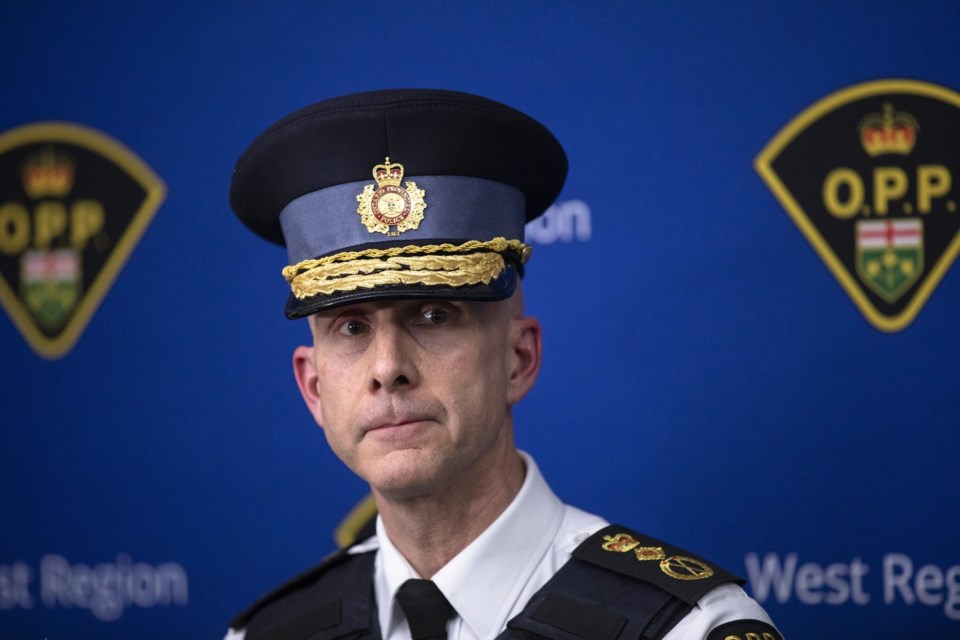HALIFAX â The frequency of protests linked to domestic and global issues is creating an âunsustainable demandâ on policing services across the country, say Canadaâs chiefs of police.
Meeting in Halifax on Tuesday for its annual summit, the Canadian Association of Chiefs of Police called on all levels of government to provide the âmoral and financial supportâ necessary to meet the demand for service.
Thomas Carrique, who is the Ontario Provincial Police commissioner and also the national association's president, said chiefs are increasingly concerned they have to pull officers away from their regular duties and dispatch them to control demonstrations.
âNational issues and global conflicts have led to an increase in the frequency, duration, complexity, risks and threats of these public assemblies in cities across our country,â Carrique told reporters.
As protests become more difficult to control, Carrique said, police will need more officers, equipment and training to deal with them. âThis increase is creating an unsustainable demand on police services and operations across Canada.â
Carrique said Torontoâs police chief told association members during the conference that his police force has responded to more than 1,000 protests since the outbreak of the Israel-Hamas war in October. The additional resources required to control the demonstrations have cost Toronto police âtens of millions of dollars that they would have had no opportunity to budget for," Carrique said.
As well, an increasing number of protests in Canada have ended in threats or violence, he said, adding that the aggression is often the result of âactivists, splinter groups or simply thugsâ who want to cause a disruption by co-opting the original intent of a lawful demonstration.
Immigration, he added, has brought in some people from parts of the world where the use of violence is an âacceptable vehicle for social change,â but he didn't name the countries. However, he also noted that police have an âenormous responsibilityâ to reach out to various communities, including areas with new immigrants, in order to build trust.
âIn some cases there is distrust for police and some people may come from areas where police are corrupt," Carrique said.
Don MacLean, chief of Halifax Regional Police, said officers can create trust when they take a background role during certain situations, including interventions involving homeless people. Halifax, he explained, has created a civilian community safety team that takes the lead with issues around homelessness, allowing police to be involved to some level âbut not necessarily always at the front."
MacLean said he believes lessons were learned from a housing protest that turned violent in downtown Halifax in August 2021. âPolicing of these types of events is ever evolving and especially we will continue to learn from things that donât necessarily go well,â he said.
Meanwhile, the association is calling for legislation that would make it illegal to target police by doxing â releasing personal information on social media or other online platforms with malicious intent. Such a law, MacLean said, wouldn't discourage people from criticizing police for their mistakes.
âItâs the way you use the tool (social media) that is whatâs important,â he said. âThere is a level of discourse that occurs that I think goes beyond what is necessary and I think thatâs what we are talking about.â
This report by The Canadian Press was first published Aug. 13, 2024.
Keith Doucette, The Canadian Press




